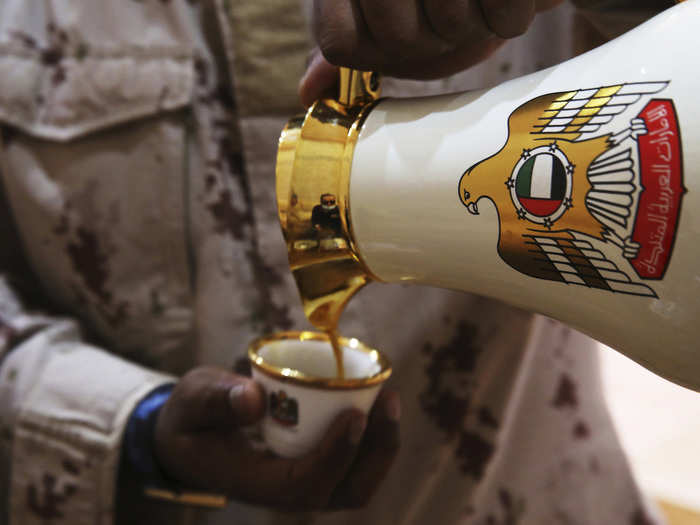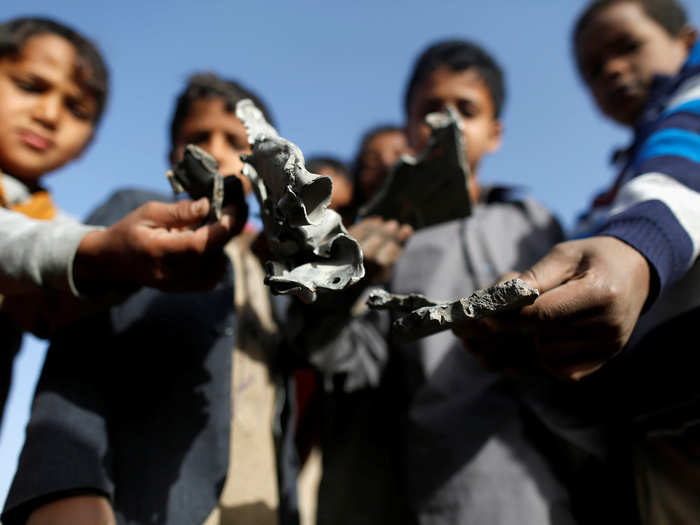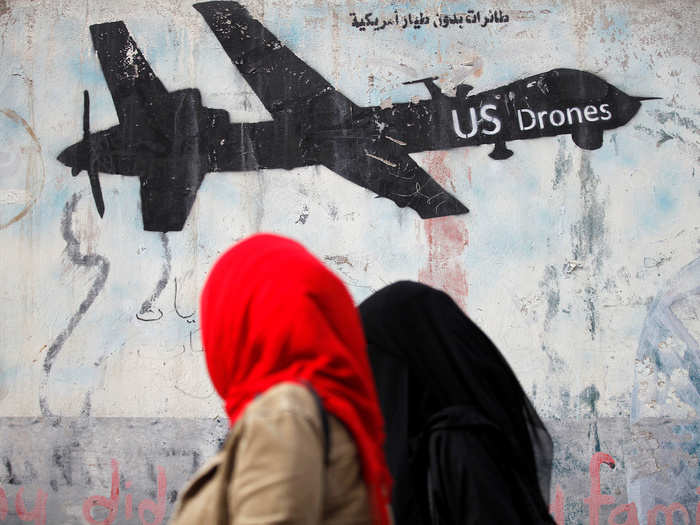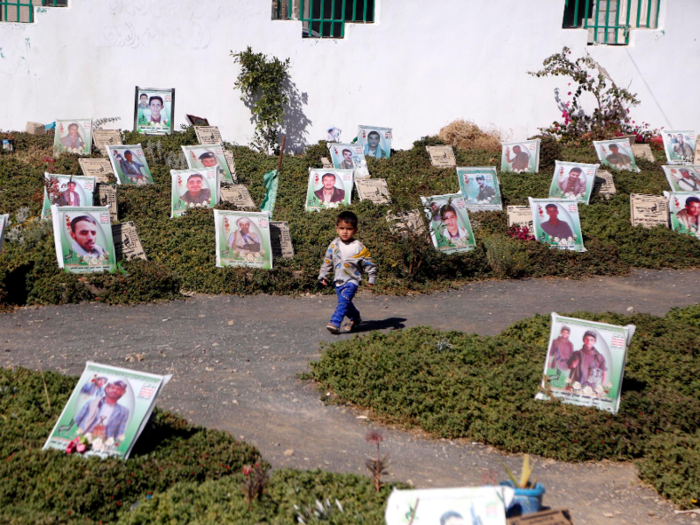- Home
- slideshows
- miscellaneous
- Yemen civil war: Who's fighting the brutal conflict that's left millions on the brink of famine
Yemen civil war: Who's fighting the brutal conflict that's left millions on the brink of famine
The Houthi rebels

Iran

Though the exact nature of the country's involvement is murky and disputed, Iran has been accused of arming the Houthis.
The Iranian connection is the primary reason for Saudi involvement, and the factor that unites its coalition.
Iran is barred from selling or transferring weapons out of the country without UN Security Council approval.
In November, the Pentagon presented a surface-to-air missile that was seized by the Saudi-led coalition en route to Yemen. The missile had Farsi writing and US officials told Reuters there was a logo from an Iranian arms maker in the warhead.
Saudi Arabia

The conflict in Yemen is largely seen as a proxy war between Saudi Arabia and Iran.
In 2009, fighting between Houthi rebels and the government of Yemen spilled over into Saudi Arabia.
In the decade since, the Saudi mission has both deepened and spread — what started as strikes is now a war waged on land, from the air, and on sea.
That mission intensified after Houthi forces gained control of Sanaa, the capital of Yemen, in 2014. The following March, Saudi Arabia and its coalition isolated Yemen economically while continuing to launch air strikes. The compounding political unrest, economic isolation, and military casualties have resulted in deadlock — and devastation.
Saudi Arabia has come under harsh scrutiny for atrocities, such as the August bombing of a school bus of children on their way to summer camps, as well as Saudi Arabia's role in the hyperinflation that's driving the country's hunger crisis.
Saudi Arabia's role in Yemen fell under scrutiny again in the wake of the Kingdom's shifting explanation of the death of journalist Jamal Khashoggi.
Read more: Here's everything we know about the troubling disappearance and death of journalist Jamal Khashoggi
Egypt

Egypt is one of the main contributors of the coalition, lending its air and naval forces to the mission.
Egypt sent four of its warships to conduct patrols and support a naval blockade of the Bab el-Mandeb strait and the port of Aden — an instrumental tactic in Saudi Arabia's plans to isolate Yemen economically.
According to the World Peace Foundation, the nation has also contributed as many as 800 ground troops.
United Arab Emirates

The UAE has contributed combat aircraft to the Saudi mission.
UAE led an assault on the port city of Hodeidah, when one of its landing craft was hit by Houthi rockets, reportedly killing four soldiers.
Bahrain, Jordan, Kuwait, Morocco, Qatar, and Sudan have contributed a wide degree of support to the Saudi coalition.

According to the World Peace Foundation, Sudan has the "largest presence of ground troops of any external member" of the Saudi-led coalition.
The foundation reported that Qatar ended its support in 2017, but Bahrain, Jordan, and Kuwait have continued supporting the air war.
The United States

US lawmakers have vowed to end its support, including arms and logistical support, for Saudi Arabia in Yemen.
Lawmakers including Democratic Sens. Chris Murphy and Bernie Sanders have said images of civilians, including children, who have suffered the consequences of the war pushed them towards a resolution, but the killing of journalist Jamal Khashoggi tipped the scales.
In the case of the school bus bombing, the bomb was reportedly a 500-pound bomb produced by US defense giant Lockheed Martin.
Amnesty International estimates nearly 6,000 civilians have been killed during the ongoing war

In what quickly became the world's largest humanitarian crisis, the war has resulted in some 22 million people in need of some form of assistance, including food, water, shelter, and sanitation.
Eighty-four thousand children have died from acute malnutrition, and 8.4 million civilians are on the brink of famine.
Popular Right Now
Popular Keywords
Advertisement